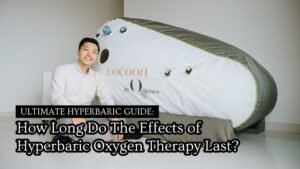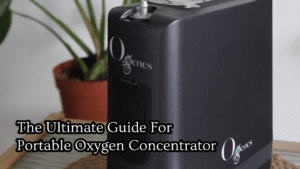This summary explores various aspects of attention deficit hyperactivity disorder (ADHD) and its relationship with oxygen. It examines research on treatment approaches and Checks Can Hyperbaric Oxygen Really Help With ADHD. The impact of oxygen-related factors on ADHD, and the complex etiology of the disorder.
Relationship with Oxygen:
Hyperbaric oxygen therapy (HBOT) emerges as a promising treatment approach for ADHD and learning disorders, as demonstrated in a case report by Lee et al. (2013). The patient in the study underwent HBOT along with scalp acupuncture, cognitive enhancement therapy, and speech-language therapy, resulting in improvements in cognitive abilities, concentration, communication, motion, confidence, and sleep conditions.
Furthermore, the association between oxygen-related factors and ADHD is investigated in several studies. In a study by Kaiser Permanente (2012), it is found that in-utero exposure to ischemic-hypoxic conditions, which involve oxygen deprivation to the brain, increases the risk of developing ADHD later in life. This suggests that events during pregnancy, such as oxygen deprivation, may contribute to the occurrence of ADHD, beyond genetic influences.
Another study by Lin et al. (year) focuses on the relationship between oxygen and dopamine in adults with ADHD. The research reveals that dopamine transporter availability is associated with the blood oxygen level-dependent (BOLD) response in specific brain regions involved in reward processing. This highlights the influence of oxygen-related mechanisms on the dopaminergic system and its implications for the neurobiology and behavior of individuals with ADHD.
What is Hyperbaric Oxygen Therapy (HBOT), and how does it relate to ADHD?
HBOT involves breathing pure oxygen in a pressurized chamber. Some proponents suggest that it can help with ADHD by increasing oxygen levels in the brain, potentially improving focus and attention.
Is HBOT a proven treatment for ADHD?
No, HBOT is not a proven or FDA-approved treatment for ADHD. While there is some anecdotal evidence and ongoing research, there is no conclusive scientific evidence to support its effectiveness in treating ADHD.
Are there any risks or side effects associated with HBOT for ADHD?
HBOT is generally considered safe when administered by trained professionals. However, potential risks include ear barotrauma, sinus discomfort, and, in rare cases, oxygen toxicity. It’s crucial to consult with a healthcare provider before considering HBOT for ADHD.
Should I consider HBOT as a treatment option for my child with ADHD?
The use of HBOT for ADHD is a matter of ongoing debate in the medical community. Before considering HBOT, it’s essential to consult with a pediatrician or ADHD specialist to explore evidence-based treatments and make an informed decision.
Are there alternative treatments for ADHD that have been proven effective?
Yes, several evidence-based treatments for ADHD exist, including behavioral therapy, medication, and lifestyle interventions. These treatments have been extensively studied and are generally considered the standard of care for managing ADHD. It’s advisable to discuss these options with a healthcare provider to determine the most appropriate approach for your or your child’s specific needs.
Conclusion:
In conclusion, the findings from these studies shed light on the multifaceted relationship between ADHD and oxygen. You got the answer of Can Hyperbaric Oxygen Really Help With ADHD. HBOT, in conjunction with other therapies, shows promise in improving ADHD symptoms and learning disorders. Moreover, prenatal oxygen deprivation is identified as a potential risk factor for the development of ADHD, emphasizing the significance of considering prenatal events in understanding the disorder. Additionally, the association between oxygen-related factors and dopamine function provides insights into the neurobiological processes underlying ADHD. These findings contribute to the development of comprehensive treatment strategies and expand our understanding of the etiology and management of ADHD.
References:
- Lee, S.-B., Lee, R.-D., Lee, S.-W., & Park, S.-J. (2013). A Case Report of a Patient with ADHD and Learning Disorders Treated with Hyperbaric Oxygen Therapy and the Oriental Medical Therapy. Department of Korean Neuropsychiatry, Dong-Seo Korean Medical Center. J of Oriental Neuropsychiatry, 24 (4), 393-402.
- Kaiser Permanente. Science Daily (2012, December 10). ADHD linked to oxygen deprivation before birth.
- Lin, S.-H., Chi, M. H., Lee, I. H., Chen, K. C., Tai, Y. C., Yao, W. J., … Yang, Y. K. (2020). Title: A pilot study on the association between the blood oxygen level-dependent signal in the reward system and dopamine transporter availability in adults with attention deficit hyperactivity disorder. CNS Spectrums, Cambridge University Press, 26(3), 299-306.







